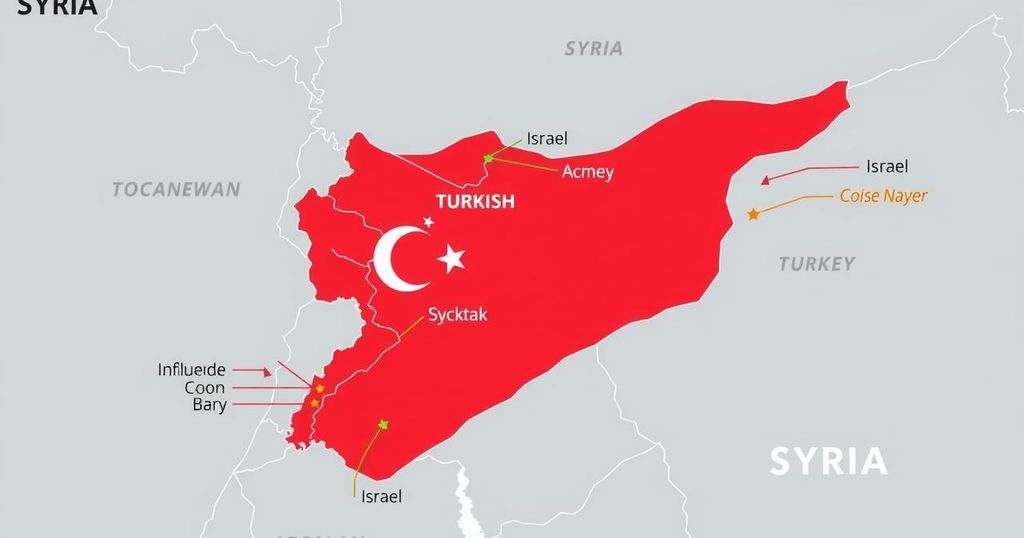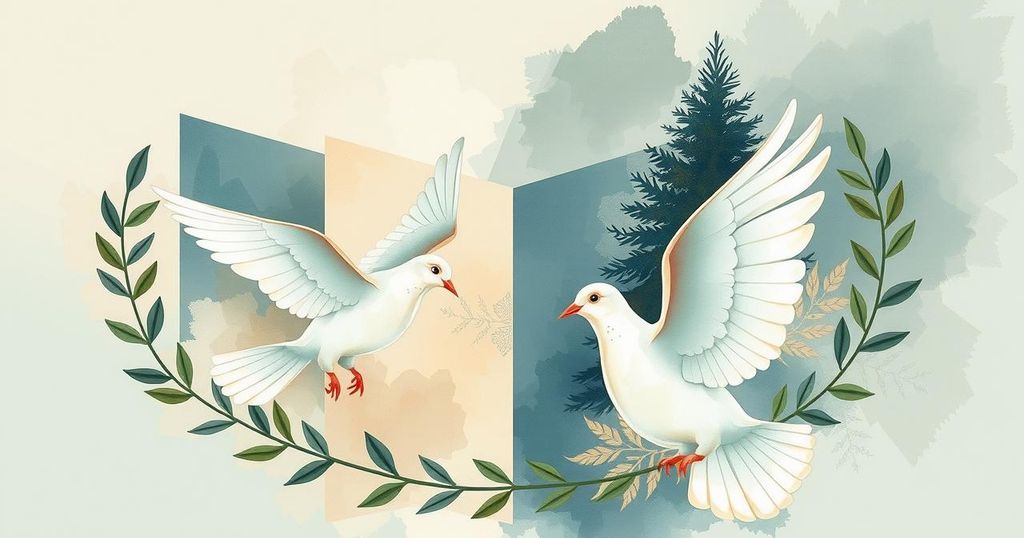Syria After al-Assad: Competing Turkish and Israeli Visions Unfold
The removal of President al-Assad marks a crucial transition in Syria, with Turkiye and Israel intensifying their competing influences. Turkiye focuses on thwarting Kurdish threats with military operations, while Israel aims to eliminate Iranian presence. President al-Sharaa faces the challenge of balancing relations with both countries amidst a complex regional landscape, with Syria’s future hinging on effective governance and stability.
The recent removal of President Bashar al-Assad on December 8, 2024, represents a pivotal moment in Syria’s history, heralding a transformation influenced by regional actors, particularly Turkiye and Israel. Their competing visions are poised to reshape Syria’s trajectory and impact the broader stability of the Middle East, indicating that the repercussions of this shift will resonate for years ahead.
Since the onset of the Syrian civil war in 2011, Turkiye has significantly influenced the conflict’s developments. Initially supporting armed groups against al-Assad, Ankara has shifted its focus towards countering Kurdish movements along its southern border, which it perceives as a direct threat. This has led Turkiye to intensify military operations in northern Syria, marked by the recent Manbij offensive targeting the Syrian Democratic Forces (SDF).
Turkiye’s military presence is substantial, with over 10,000 troops deployed along the Syrian border, and the establishment of new military outposts. These efforts aim to undermine Kurdish self-governance while facilitating demographic changes by resettling pro-Turkish Syrian Arab families in strategically significant locations. Moreover, Turkiye has committed approximately $2 billion in infrastructure projects in areas under its control.
In contrast, Israel’s strategic focus revolves around curbing Iranian influence and Hezbollah’s presence in Syria, especially in light of the power vacuum created by al-Assad’s potential ousting. Israel has undertaken extensive military operations, conducting nearly 80 airstrikes aimed at disrupting Iranian supply routes and mitigating the risks posed by Hezbollah’s activities in Syria.
With the new administration under President Ahmed al-Sharaa, Syria now faces the challenge of navigating relations with both Turkiye and Israel. The concerns regarding Turkish military presence are significant, and joint discussions have been initiated regarding the status of Turkish bases. While this dialogue is ongoing, no agreed resolution has been reached, highlighting the complexity of the situation.
Al-Sharaa’s government exhibits a more pragmatic approach towards Israel compared to its predecessor, focusing on internal stability. Although direct diplomatic relations remain absent, backchannel communications have been established amidst the backdrop of Israeli demands for the dissolution of Iranian military infrastructure in Syria.
Despite the absence of direct conflict, the tensions between Turkiye and Israel are palpable, influenced by Turkiye’s support for Syrian opposition factions that Israel views as a threat. The shifting dynamics on the battlefield create potential for indirect confrontations. Simultaneously, an intelligence war is unfolding, with both nations heightening surveillance and espionage efforts against each other.
With external powers such as the United States and Iran also weighing in on the Syrian question, complexities are further heightened. Iran is reportedly revitalizing its networks in the region, while Russia’s continued backing of al-Assad poses further challenges. The Gulf States are recalibrating their approach, moving from isolation to engagement with Syria’s new government, aimed at counterbalancing Turkiye and Iran’s influence.
Syria’s future remains uncertain, contingent upon the new administration’s ability to balance complex internal and external pressures. Successfully managing these dynamics will be crucial for steering the country towards an era of stability and peace.
The ousting of Bashar al-Assad has ushered Syria into a new phase, where regional actors such as Turkiye and Israel are vying for influence. Turkiye aims to counter Kurdish threats by solidifying its military presence and altering demographics. Simultaneously, Israel intensifies its operations to combat Iranian interests. Al-Sharaa’s administration faces significant challenges in managing relations with both nations amid ongoing regional complexities. Syria’s path forward will depend on how effectively the new government navigates these multifaceted pressures, striving for stability and reconstruction.
Original Source: shafaq.com




Post Comment